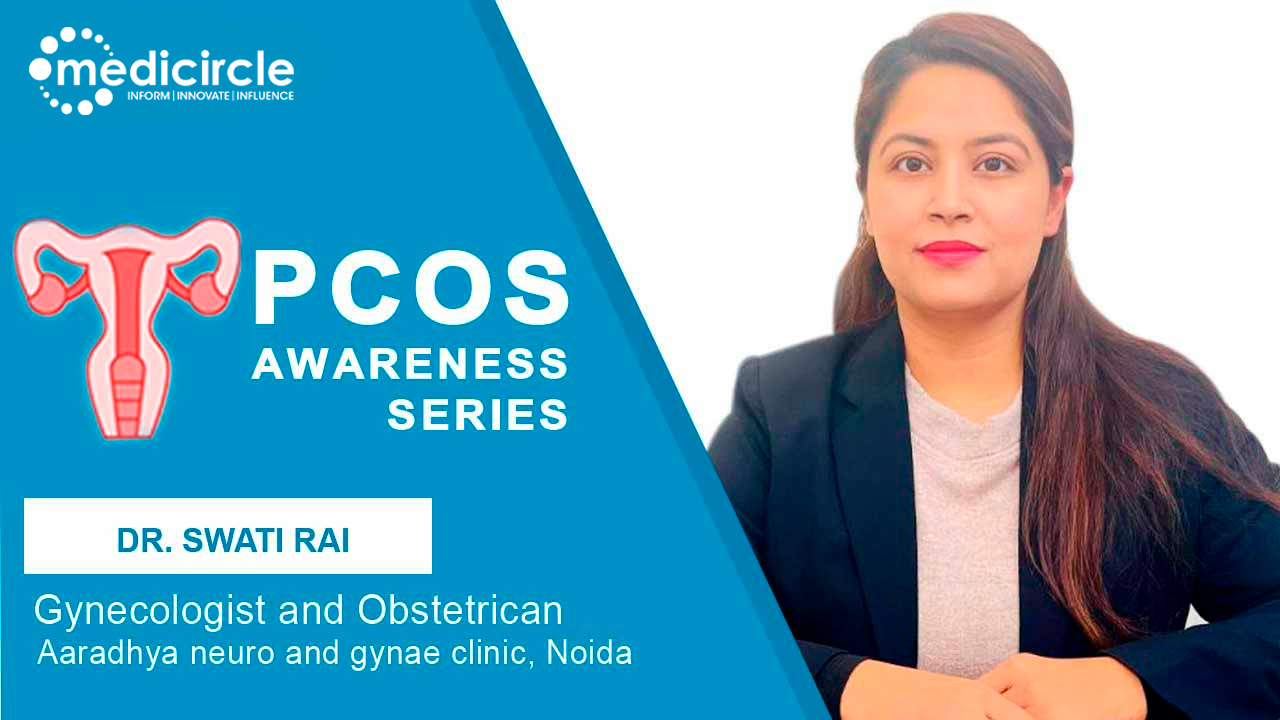Dr. Swati Rai is a Gynaecologist, Obstetrician, and Laparoscopic Surgeon in Noida and has experience of 12 years in these fields. Dr. Swati Rai practices at Aaradhya Neuro and Gynae Clinic in Sector 50, Noida. She completed MBBS from North Bengal Medical College and Hospital, Siliguri in 2010 and MS - Obstetrics & Gynaecology from Tripura University in 2015. She aims to increase awareness regarding cancer cervix prevention, PCOS, adolescent health, and focuses on the overall well-being of women for which she is widely associated with renowned hospitals, such as Cloudnine, Fortis, and Motherhood.
PCOS – Serious complication
Dr. Swati says, “PCOS is the common endocrine metabolic disorder and in the current generation, it's more like an epidemic. Every 1 in 5 women in India has PCOS. It starts with menstrual irregularities, but once it persists for a long time (become longstanding) then it can have serious complications."
Dr. Swati Rai listed some of them
1. Infertility
2. Impaired glucose tolerance – type 2 diabetes
3. Cardiovascular diseases – hypertension
4. Metabolic syndrome
5. With irregular periods, progesterone levels increase in the female body which can cause endometrial cancer.
6. PCOS patients are also at risk of breast cancer and ovarian cancer.
7. Women are at increased risk of diabetes during pregnancies (gestational diabetes) as well as preeclampsia.
Regular screening tests for PCOS women
Dr. Swati expresses, “Any metabolic disorder doesn’t disappear on its own. Studies have shown that it can be genetic also. Many girls do get irregular periods in their puberty age but are not diagnosed. Full flare PCOS can be seen in the reproductive age group i.e 30 years. As the age advances, hormonal changes take place and the ovulatory problem starts getting resolved. But even after attaining menopause (when menstruation stops), PCOS patients are still at high risk of all of the listed dangers. This is why PCOS women should always undergo regular screening tests which include some basic tests for diabetes, BP, etc. Periods regularity doesn’t mean that your PCOS is cured, the risk is always there.”
PCOS management
Dr. Swati mentions, “We can maintain PCOS, we can control it. PCOS management always starts with lifestyle modification. Lifestyle changes are always beneficial in any chronic disease.
1. The patient should consume a low carbohydrate diet
2. The patient should take small frequent meals.
3. Exercise (aerobic exercise) – It decreases the body’s insulin resistance
4. Medicines are there to regularise periods.
5. PCOS causes hirsutism for which medicines are available and can be given.
6. Metformin is also prescribed to some PCOS patients."
PCOS does not cause pain
Dr. Swati ends, “PCOS doesn’t cause pain. The small follicles fail to grow, form multiple small cysts and give the appearance of a pearl-like necklace. Many times, these cysts become enlarged causing pelvic pain. This big cyst may cause pain in the lower abdomen and back. But if the pain is very severe (unbearable), then do rule out other diseases as well. There might be other underlying issues. In such a case, do seek the help of a medical specialist. "
(Edited by Renu Gupta)

 Every 1 in 5 women in India has PCOS. In the present scenario, PCOS is just like an epidemic. Longstanding PCOS can have serious complications. Dr. Swati Rai gives valuable insights on these complications. Let’s take a look.
Every 1 in 5 women in India has PCOS. In the present scenario, PCOS is just like an epidemic. Longstanding PCOS can have serious complications. Dr. Swati Rai gives valuable insights on these complications. Let’s take a look.










.jpeg)



.jpeg)
.jpeg)

.jpeg)


.jpeg)



.jpeg)
.jpeg)
.jpeg)


.jpg)

